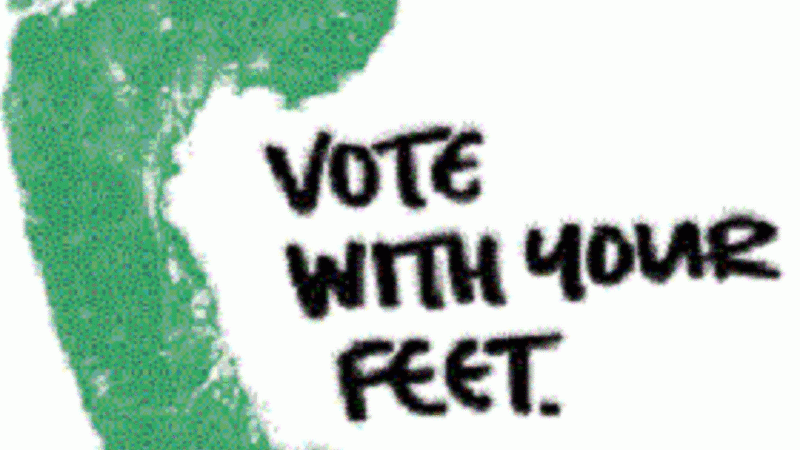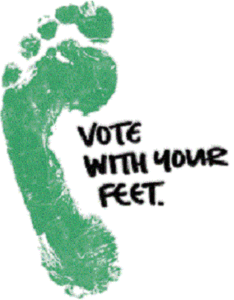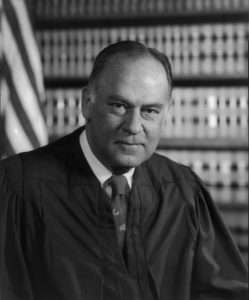A coalition of preservation groups in Orange County, California, is suing the coastal community of Laguna Beach in an effort to overturn a recent amendment to the city’s historic preservation ordinance that requires property owners to voluntarily opt in to having their homes considered a historic resource and all the restrictions that come with that.
“It would be unthinkable for the City to require owner consent to review biological habitat or wetlands during the approval process,” said Krista Nicholds, president of Preserve Orange County, in a press release. “State law recognizes that historic resources have comparable public benefit. Owner consent has nothing to do with objective standards of historic merit.”
Last week, Preserve Orange County, alongside the Laguna Beach Historic Preservation Coalition and Village Laguna, filed a lawsuit in the Superior Court of California, County of Orange arguing that Laguna Beach failed to conduct sufficient environmental review—as required by the California Environmental Quality Act (CEQA)—when approving its new voluntary preservation law in August 2020.
Supporters of the voluntary preservation ordinance counter that Laguna Beach had for years been relying on an outdated “historic inventory” when determining which buildings were historic resources. Homeowners were often unaware of their properties’ supposed status as a historic resource and thus were blindsided by the restrictions that come with that status when applying for permits to perform even basic alterations.
“They would make their planning applications and they’d just get ambushed by someone popping up and saying this is a historic resource,” says Larry Nokes, a Laguna Beach attorney who was an advocate for amending the city’s preservation ordinance.
Property owners “looking at a fairly simple window replacement or door replacement would be forced to get a historic assessment of the house at their expense and then find that they were limited at what they were able to do in their remodel,” he says.
“In 2011, I was able to hire a contractor to install new clad windows, fireproof the house with Hardback siding and drywall the interior walls. However, when I went to the city to pull a permit, I was told I was on the historic inventory and would have to install all wood,” wrote one Laguna Beach homeowner in a blog post published by Let Laguna Live, a group that supported the voluntary preservation ordinance. Not until October 2020, after the passage of the new preservation ordinance, was this homeowner able to obtain permits for these modest alterations, according to the post.
The conflict over what counts as a historic resource in Laguna Beach goes back to 1980 when the city created a Historic Resources Inventory of 852 pre-1940 homes.
In 1989, the city considered a historic preservation ordinance that would have automatically deemed anything on this inventory to be a historic resource. That idea, says Nokes, provoked huge opposition from homeowners at the time, so much so that the city council instructed city staff to amend this draft ordinance to make clear that it would “apply the historic preservation program on a voluntary basis only.”
Under that ordinance, homeowners could volunteer to place their homes on the Laguna Beach Historic Register—a separate list of properties from the historic inventory—and receive incentives for doing so.
But beginning in the 2000s, says Nokes, “the way the city started to apply the matter was that if your house was on the inventory you were considered to be a historic resource and that you as a homeowner had to prove to the city that you the house was not a historic resource.”
This presumption that properties on the inventory were historic buildings frustrated a growing number of homeowners looking to make changes to their property, says Nokes.
To remedy this problem, the new voluntary historic preservation ordinance passed by the city makes three main changes that protect the property rights of homeowners.
Firstly, it creates for the first time a comprehensive city-level definition of what counts as a historic resource. In order to qualify for that designation, a property has to be listed on the city’s historic register or on a state and national historic register. Secondly, it requires that property owners consent to be placed on the city’s historic register and provides them with incentives for applying to do so, including property tax breaks and relief from minimum parking requirements. Lastly, the new ordinance scrubs all references to the 1980 historic inventory from city regulations and policy documents.
The new law does not remove any properties from the city’s historic register. The ordinance still goes too far for preservationist groups who candidly argue in their lawsuit that many homeowners can’t voluntarily be trusted to maintain their properties as is.
“Property owners with plans to clear valuable coastal lots for new buildings are likely to oppose rather than consent to historic status despite the unique historic value of existing buildings,” reads their complaint. “Owners will not be required to explore options for the feasible, cost-effective expansion and restoration of historic homes…Laguna’s Historic Preservation Program will thereby facilitate needless, irreversible damage to [the city’s] charming beachtown character and historic legacy.”
CEQA requires that government agencies study “projects”—which include things like zoning or historic preservation ordinances—for significant environmental impacts before approving them. Should significant impacts be found, said agencies must mitigate them before approving a project. The law also empowers third parties to sue if they believe a project was approved without studying some environmental impact.
A 250-page study prepared for the city on its voluntary historic preservation program determined that it would not have any significant environmental impacts. Preservation groups argue that this conclusion was reached in error and that the city’s new ordinance needs to be put aside until an even more thorough environmental impact report can be performed.
Specifically, they argue that CEQA “protects the historic ‘built’ environment to the same extent as the state’s natural resources such as air, water, and forests” and that owner consent is wholly irrelevant to whether a property merits historic protection.
It’s not unheard of for preservationists to try to landmark properties as historic over the consent of their owners. In 2019, Denver preservationists attempted to landmark the long-standing Tom’s Diner in order to prevent the owner from selling the property to a developer as a means of funding his retirement, for instance.
The theory behind these efforts is seemingly that the value residents gain from looking at a historic building outweighs whatever plans the person who actually owns that building might have for their property. The lawsuit filed against Laguna Beach’s preservation ordinance adds another wrinkle to this idea by arguing that buildings are every bit as pristine as nature itself and thus should be afforded the same level of protection.
Nokes argues that preserving truly historic buildings and property rights need not be an either-or proposition.
“People who are passionate about historic preservation are passionate about it. There are other people who have a piece of real property and they want to use that for their family,” he tells Reason. “The ordinance does nothing to dampen the enthusiasm of the preservationists, but it also doesn’t do anything to place the other owners in a state of real estate servitude where they have to maintain the property as a historic resource or be subject to criminal penalties.”

from Latest – Reason.com https://ift.tt/2MfcA0j
via IFTTT




